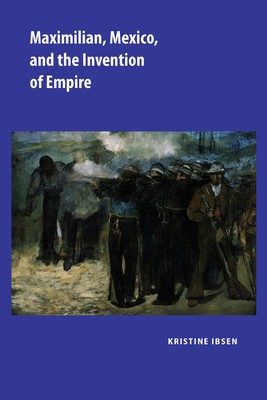
- We will send in 10–14 business days.
- Author: Kristine Ibsen
- Publisher: Vanderbilt University Press
- ISBN-10: 0826516882
- ISBN-13: 9780826516886
- Format: 15.2 x 23.1 x 2.8 cm, hardcover
- Language: English
- SAVE -10% with code: EXTRA
Reviews
Description
In Maximilian, Mexico, and the Invention of Empire, the cultural legacy of the Second Mexican Empire is examined as essential to modern understandings of empire and nation. The Second Empire refers to the brief period (1864-1867) during which Napoleon III sought to consolidate his control in Mexico by installing an Austrian archduke as Emperor Maximilian I of Mexico. Far from fading into obscurity upon Maximilian's fall and execution, however, the episode has continued to resonate in the cultural imaginary.
That resonance becomes the theme in this book, as the author skillfully crafts a cross-disciplinary analysis that demonstrates how resistance to the Empire helped consolidate Mexican political and cultural identity, as well as how this episode was appropriated outside Mexico as a symbol of popular triumph over autocratic rule. The book begins with a discussion of empire and nation in visual culture and the opposition press during the occupation, and subsequent chapters are dedicated to Edouard Manet's Execution of Maximilian series (1867-1869), the antifascist film Juarez (USA, 1939), and Mexican Fernando del Paso's novel Noticias del Imperio (1987). By examining the multiple modes through which history may be narrated, this book elucidates how creative works create meaning and effect political change
EXTRA 10 % discount with code: EXTRA
The promotion ends in 20d.08:19:27
The discount code is valid when purchasing from 10 €. Discounts do not stack.
- Author: Kristine Ibsen
- Publisher: Vanderbilt University Press
- ISBN-10: 0826516882
- ISBN-13: 9780826516886
- Format: 15.2 x 23.1 x 2.8 cm, hardcover
- Language: English English
In Maximilian, Mexico, and the Invention of Empire, the cultural legacy of the Second Mexican Empire is examined as essential to modern understandings of empire and nation. The Second Empire refers to the brief period (1864-1867) during which Napoleon III sought to consolidate his control in Mexico by installing an Austrian archduke as Emperor Maximilian I of Mexico. Far from fading into obscurity upon Maximilian's fall and execution, however, the episode has continued to resonate in the cultural imaginary.
That resonance becomes the theme in this book, as the author skillfully crafts a cross-disciplinary analysis that demonstrates how resistance to the Empire helped consolidate Mexican political and cultural identity, as well as how this episode was appropriated outside Mexico as a symbol of popular triumph over autocratic rule. The book begins with a discussion of empire and nation in visual culture and the opposition press during the occupation, and subsequent chapters are dedicated to Edouard Manet's Execution of Maximilian series (1867-1869), the antifascist film Juarez (USA, 1939), and Mexican Fernando del Paso's novel Noticias del Imperio (1987). By examining the multiple modes through which history may be narrated, this book elucidates how creative works create meaning and effect political change


Reviews